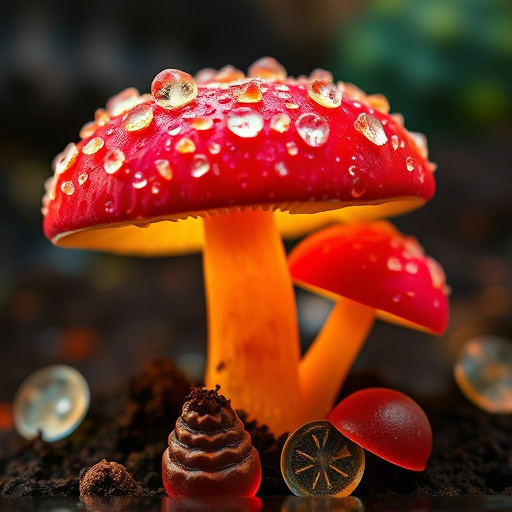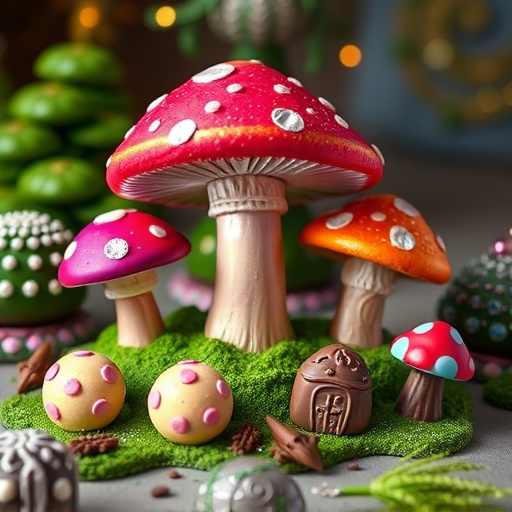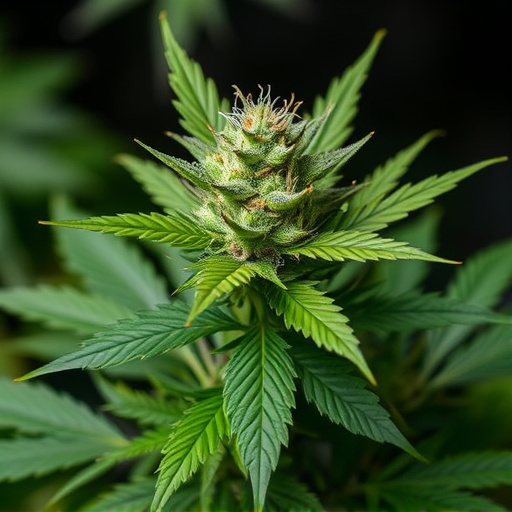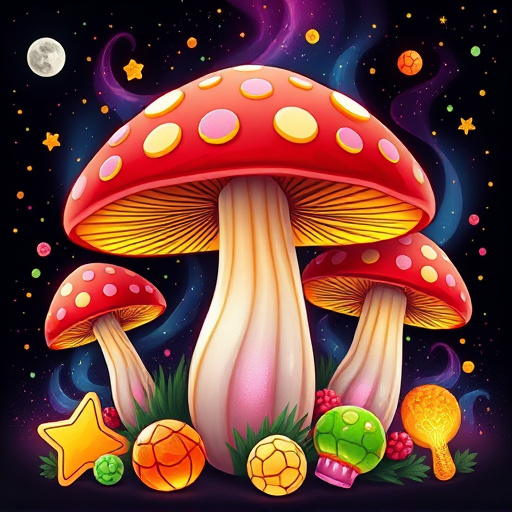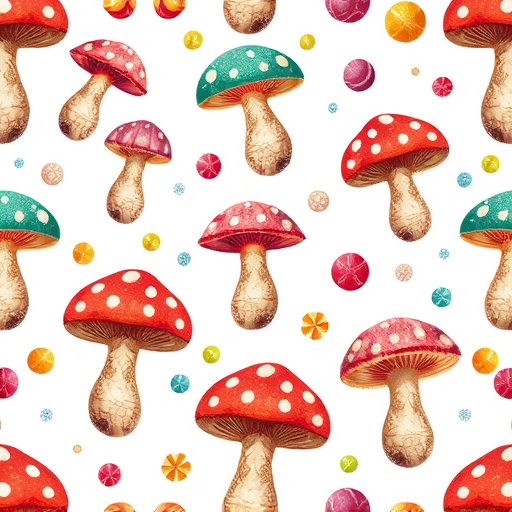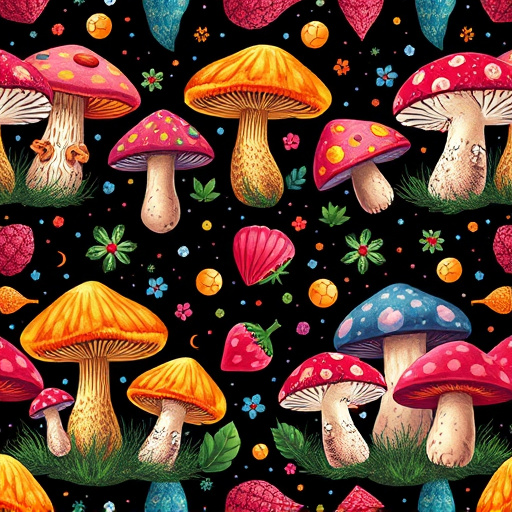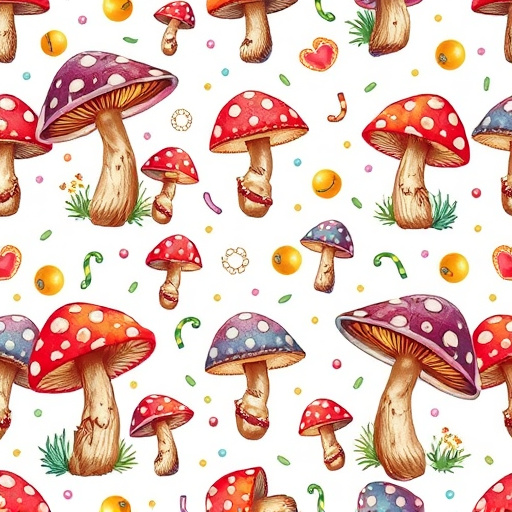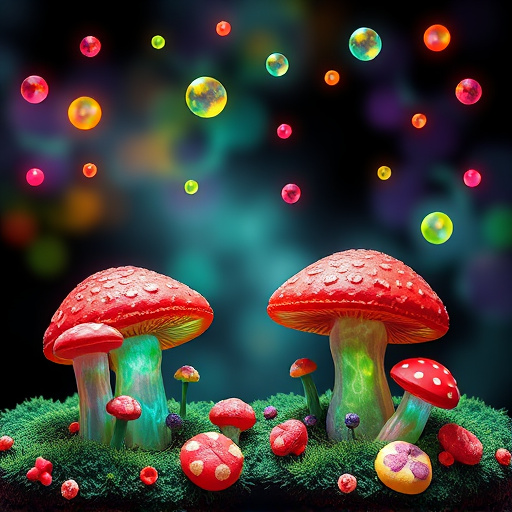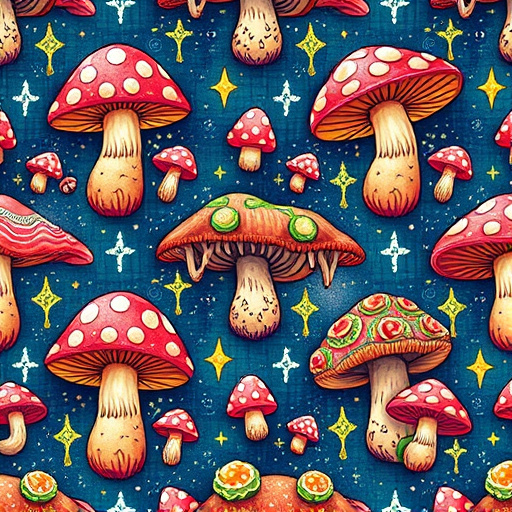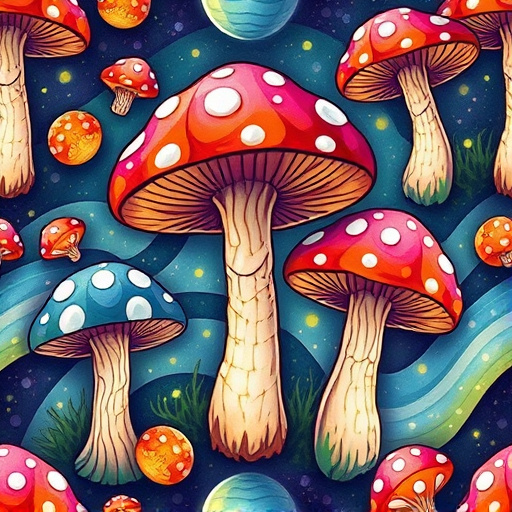The text examines the potential of magic mushroom gummies as a modern psychedelic therapy for anxiety, highlighting early research indicating therapeutic benefits like reduced anxiety and enhanced creativity up to six months post-dose. However, it emphasizes the lack of understanding regarding long-term effects, with varied individual responses ranging from positive experiences to adverse reactions and dependence. More research is crucial to establish safety, tolerance development, and potential mental health implications associated with regular consumption.
“Unraveling the potential of Magic Mushroom Gummies as an innovative approach to anxiety relief has gained traction in recent years. This article explores the intriguing concept of harnessing psychedelic compounds within a gummy format, offering a palatable alternative for those seeking support for their anxiety. We delve into the composition and effects, examining current evidence and considering the long-term implications of using Magic Mushroom Gummies. By understanding these factors, individuals can make informed decisions regarding this emerging trend, especially regarding its potential as a sustainable solution.”
- Understanding Magic Mushroom Gummies and Their Composition
- Exploring the Evidence: Effectiveness in Anxiety Relief
- Long-Term Use Considerations and Potential Outcomes
Understanding Magic Mushroom Gummies and Their Composition
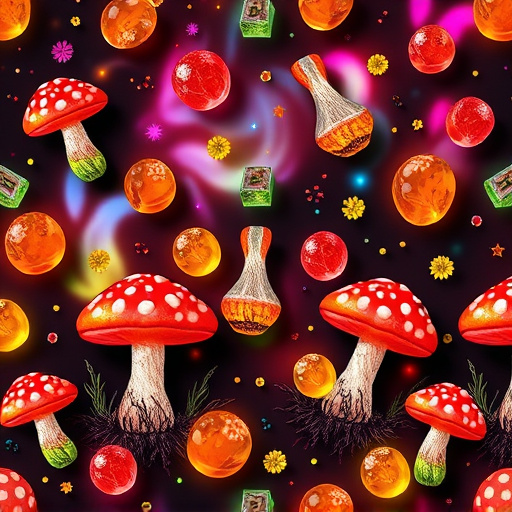
Magic mushroom gummies are a modern twist on traditional psychedelic therapy, offering a convenient and discreet way to potentially manage anxiety. These edibles contain psilocybin, the active compound found in certain species of magic mushrooms, which has gained significant attention for its therapeutic benefits. The composition typically includes psilocybin as the key ingredient, often combined with other natural flavors and sweeteners to create an appealing snack. Unlike their illicit counterparts, these gummies are produced under controlled conditions, ensuring purity and consistency in dosage.
The long-term effects of magic mushroom gummies on anxiety relief are a subject of growing interest in the mental health community. Early research suggests that psilocybin can induce profound psychological changes, leading to reduced anxiety, depression, and even enhanced creativity. Proponents argue that this natural compound has the potential to offer lasting therapeutic benefits, providing an alternative approach to conventional treatments. However, as with any substance, individual responses may vary, and ongoing studies are crucial to fully understanding its effects over extended periods.
Exploring the Evidence: Effectiveness in Anxiety Relief
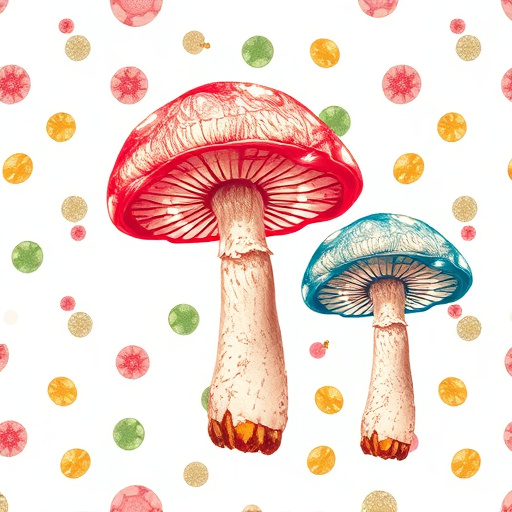
Exploring the evidence, it appears that magic mushroom gummies may offer a promising avenue for anxiety relief, but it’s essential to understand their potential long-term effects. Several studies have suggested that psilocybin, the active compound in magic mushrooms, can significantly reduce symptoms of anxiety and depression when administered under controlled conditions. Research has shown that a single dose of psilocybin-assisted therapy can lead to sustained improvements in mood and mental health for up to six months.
However, the long-term effects of regular consumption of magic mushroom gummies are less understood. While some users report positive experiences and continued relief from anxiety symptoms, others may experience adverse reactions or a potential risk of dependence. It’s crucial to consider that the majority of research on psilocybin has been conducted in controlled settings with closely monitored doses, unlike the typical usage of edibles like magic mushroom gummies. More studies are needed to fully comprehend the long-term implications and ensure safe and effective use for anxiety relief.
Long-Term Use Considerations and Potential Outcomes
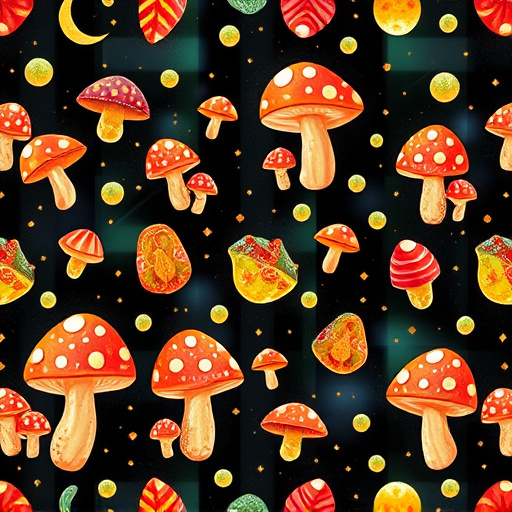
While magic mushroom gummies may offer short-term relief for anxiety, considering long-term use involves a closer look at the potential outcomes. Ongoing consumption could lead to an altered perception and potentially impact mental health over time. Some users report enhanced creativity and improved mood, but these effects vary greatly among individuals. The long-term effects of magic mushroom gummies are not well-researched, leaving room for uncertainty about their sustained benefits and risks.
Regular use may result in tolerance development, requiring higher doses to achieve the desired effect. Additionally, sudden cessation after prolonged use could cause withdrawal symptoms, including irritability and insomnia. It’s crucial to balance potential relief with these considerations before embracing long-term reliance on magic mushroom gummies for anxiety management.
While preliminary studies suggest potential for anxiety relief using magic mushroom gummies, further research is needed to understand their long-term effects. The current evidence highlights a promising avenue for treatment, but caution is advised due to limited data on sustained use. As with any alternative therapy, individuals considering magic mushroom gummies for anxiety should consult healthcare professionals for personalized guidance and monitor potential side effects or interactions.
